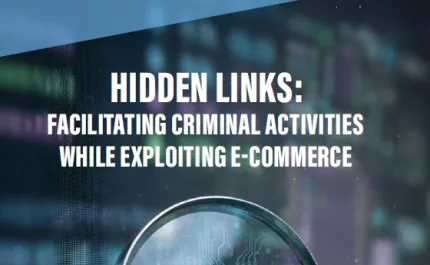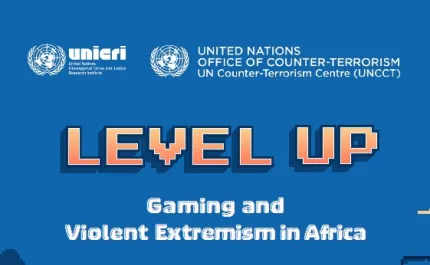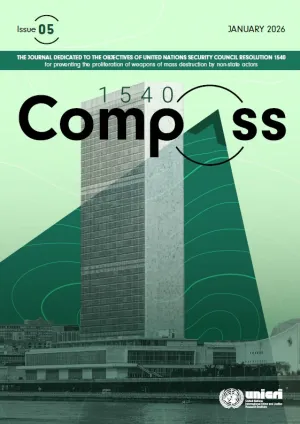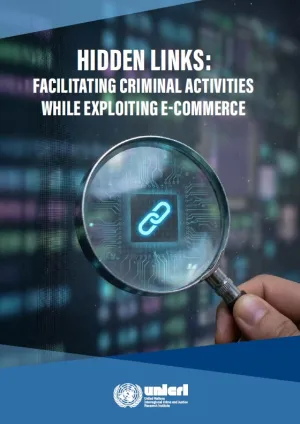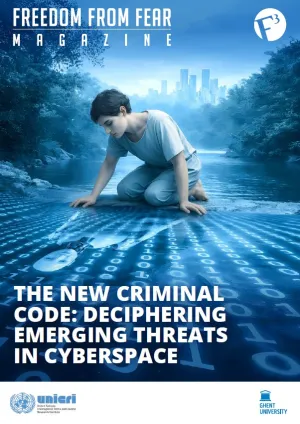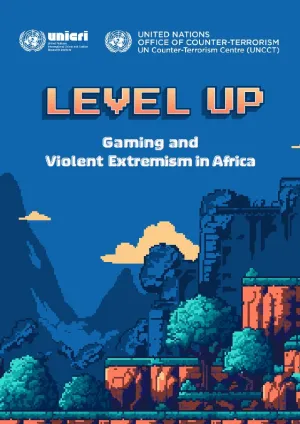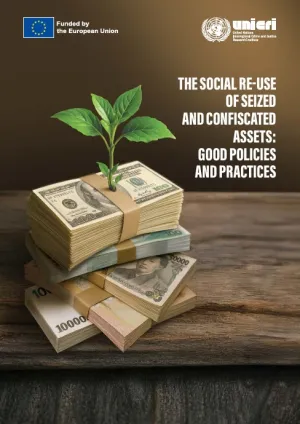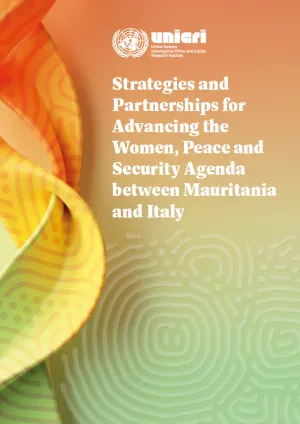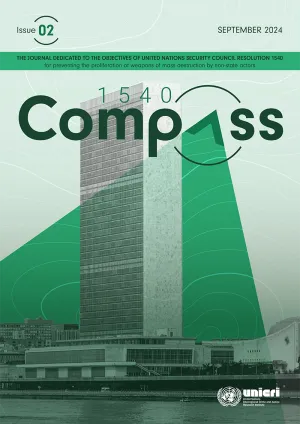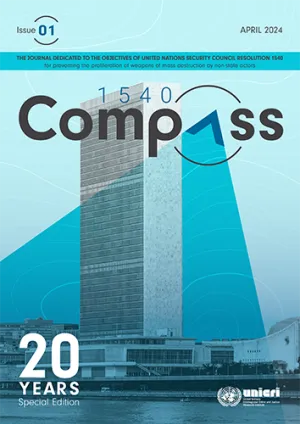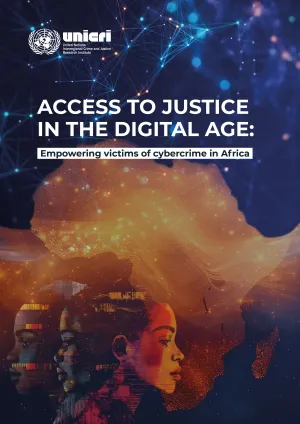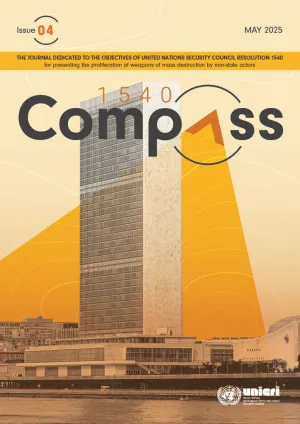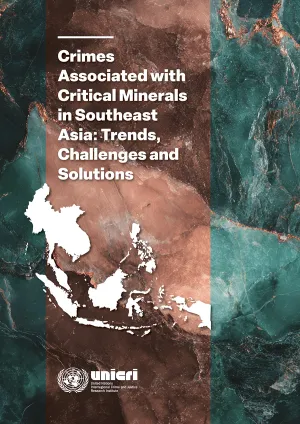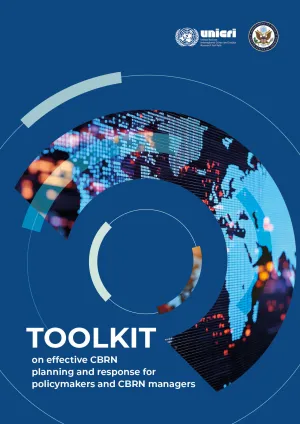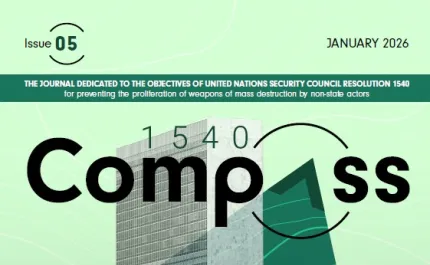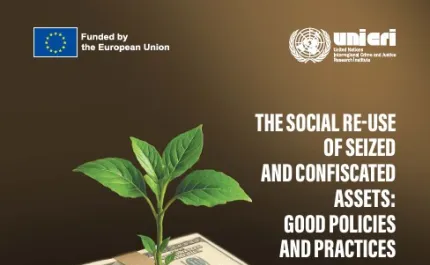Fulltext search
Categories
- Any - Archived CAPACITY-BUILDING Spotlight Courses Highlights Multimedia Postgraduate Education Publication Training for Professionals Strategic priority
Tags
- Any - "Countering Criminal Enterprises, Illicit Financial Flows, and Corrupt Practices #MoreThanAGame 1540 Compass 2020 2022 2023 3D printing 9-December-2023 A Prosecutor’s Guide to Chemical and Biological Crimes Advanced education Afghanistan Africa AI for Good AI for Safer Children AI Toolkit for Law Enforcement AI-based tool Alternative measures Anti-Corruption-Day Armenia Art crime ARZ Exercise Asean Community Asset Recovery ATLAS: Preventing non-state actors from planning and carrying out chemical weapons attacks Authentication Technologies Authentication Technologies Beneath the Surface: Terrorist and Violent Extremist Use of the Dark Web and Cybercrime-as-a-Service Best practices Biological Weapons Convention Biosecurity Board of Trustees, Building a Safer South-East Asia by Preventing and Responding to the Use of Chemical Weapons by Terrorists and Other non-state Actors in Indonesia Cambodia CBRN CBRN Academy CBRN Disinformation CBRN proliferation financing CBRN proliferation financing in Southeast Asia CBRN risk mitigation CBRN waste management Charter of the United Nations Chemical and Biological Terrorism Chemical weapons Chemical weapons attacks Chemical, biological, radiological, and nuclear disinformation Civil confiscation Civil society Class 2022 Climate Change Climate change and violent extremism Climate insecurity Climate security policies gender-sensitive Commission on Crime Prevention and Criminal Justice Commission on Crime Prevention and Criminal Justice CCPCJ Commission on the Status of Women CSW68 CON Conflicts CONTACT CONTACT CONTACT – Southeast Asia CONTACT Black Sea CONTACT Central Asia Contact Southeast Asia CONTACT Southeast Asia Regional Counter proliferation financing Countering Criminal Enterprises, Illicit Financial Flows, and Corrupt Practices Countering organized crime and fighting all forms of trafficking and illicit financial flows Countering violent extremism COVID-19 COVID-19 pandemic Crime prevention, justice, human rights Crimes Associated with Critical Minerals Cultural goods Cultural Heritage Cyber crimes Cyber warfare Dark Web Data Protection Debunking false information Defence Seminal Defence Seminar Director Disarmament Disinformation EAP Region Eastern Europe Ecos Emergency management Empowering communities Environmental conflicts and justice Environmental Sustainability and Rehabilitation in Prisons EU CBRN CoE EU Chemical, Biological, Radiological and Nuclear Centres of Excellence EUCBRNCoE facial recognition technology Forgery Gaming and the metaverse Gaming and violent extremism Gender and security Gender discrimination and prevention of violent extremism in the Sahel Gender issues and violent extremism Gender responsive drug policies Georgia Global Hub AI for Safer Children Global Sports Programme Goal Goal 13 Goal 16 Goal 17 Goal 4 Goal 5 Graduation, Green Prisons Research Initiative Guide des procureurs pour les Crimes Chimiques et Biologiques Homepage Illicit trafficking in cultural goods Illicit trafficking of critical minerals Illicit trafficking of green mineral Illigal Mining and Trafficking Innovative Technologies in Prisoner Rehabilitation Integration of gender perspectives in preventing violent extremism Intellectual Property Rights Inter-agency coordination International and regional cooperation International Criminal Court International Criminal law International Day of Education 2026 International Day of Innocent Children Victims of Aggression International Day of Police Cooperation International Day Women and Girls in Science international law International Network on Biotechnology Interregional cooperation Investigating and prosecuting chemical and biological crimes Investigation, Prosecution, and Adjudication of CBRN Crimes Jayantial M. Karia, Judicial authorities Justice reform Lao PDR Latin America Law Lawyers LL.M in Transnational Crime and Justice LL.M, Lone Attackers Mandela's Rules Master of Laws in Transnational Crime and Justice Master of Laws LL.M. in Cybercrime, Cybersecurity and International Law Master of Laws, Metaverse Migrant Migrants and displaced people minerals Misinformation Misinformation, Disinformation and Hate Speech Moldova Multilingualism Nature Crime Nature Crime Alliance Nuclear analytical techniques Nuclear Analytical Techniques Nuclear and Radiological Threats Online child abuse Online Crime Online Drugs Sales Open-source intelligence Penal Reform Perspective de genre dans les initiatives de prévention de l’extrémisme violent Phnom Penh Policing Post graduate education PRECA President Board of Trustees, Preventing and countering disinformation Preventing and Countering Transnational Security Threats, Terrorism, and Points of Nexus Preventing and countering violent extremism Preventing and Countering Violent Extremism and Radicalization Preventing and Mitigating CBRN Proliferation Financing Risks Preventing Chemical and Biological Terrorism Preventing crime through the protection and empowerment of vulnerable groups Preventing zoonotic diseases Prévention des conflits et de l'atténuation Prison reforms Prisoner Rehabilitation through Innovative Technologie Private Military Companies Professional Training Proliferation of weapons of mass destruction WMD Promoting Responsible Use of New and Emerging Technologies to Address Crime and Exploitation Promoting Rule of Law and Safeguarding Access to Justice Propaganda Prosecution and investigation of chemical and biological crimes Prosecutor's Guides to CBRN Crimes Prosecutor’s Guide to Chemical and Biological Crimes Prosecutor’s Guide to Radiological and Nuclear Crimes Protecting infrastructures Protecting religious sites Public-Private Partnerships Radiation and Nuclear Security Recovery and return of stolen assets Regional and international cooperation Reinforcing the rule of law in post-conflict countries Renforcement des Capacités des Organisations de la Société Civile Resolutions Response to CBRN incidents Rights of the Child Safer Children Sahel SIRIO Social inclusion Social media Software security Specialized Course on Cultural Heritage, Crime and Security Specialized Training Sport for Development and Peace Sport for the Prevention of Violent Extremism Sports Strategic Programme Framework Strategic Programme Framework 2023-2026 Stronger together summer course, illicit trade, how to apply, relevant information Sustainable Development Goals Technology and CBRN Toolkit for Responsible Artificial Intelligence Innovation in Law Enforcement Toolkit on Effective CBRN Planning and Response for Policymakers and CBRN Managers Tourism security Trafficking in persons Trafficking of radiological and nuclear material Training, Ttraining for Law Enforcement Ukraine UN Campus Turin UN Day UN Day 2024 UN Global Counter-Terrorism Coordination Compact Committee UN Security Council Resolution 1540 Unemployment United Nations 2030 Agenda United Nations Global Sports Programme United nations Security Council Resolution 1540 Uniting-Against-Corruption Unmanned aircraft systems threat UNSCR 1540 e-journal Urban security Uzbekistan Violent extremists, pandemic, youth Vulnerable Youths, ECOSOC, COVID-19 pandemic Vunerable youth Water Safery West Africa Women empowerment Women in chemistry Women, peace and security Women, Peace, and Security Agenda in Italy and Mauritania World Children's Day World Day for the Prevention of and Healing from Child Sexual Exploitation, Abuse and Violence. Youth resilience Руководство для прокуроров по преступлениям, связанным с применением химического и биологического оружия دليل المدعي العام لجرائم الكيمياء والأحياء المجرمة 2007 Academic community Action-Oriented Research Artificial intelligence (AI) Peacebuilding Rehabilitation and reintegration strategies Threat Response Transnational organised crime Violence against women 2008 Advocacy Augmented and virtual reality Clinical management Community resilience Law enforcement agencies Peacekeeping Security threats Trafficking of stolen assets Violent extremist ideology 2009 Awareness-raising Big data analytics Crime International organizations Post-conflict countries Security Governance Tax evasion Victimization Violent extremism 2009 Blockchain Capacity-building Crime control Marginalized communities Organised crime Post-conflict recovery Safety and security plans Social exclusion Victims of terrorism 2010 Conventions Crime prevention Data science Money laundering Restorative justice Risk factors Risk Mitigation The nexus between transnational organized crime and terrorism United Nations secretariat 2011 Criminal justice Digital biology and biotech Evaluation and impact analysis Migrant smuggling National action plans Reducing vulnerabilities Terrorism Youth 2012 Field activities Governance Hate speech and hate crimes Illicit trafficking of precious metals Major events security Misuse of advances in technology Returning foreign terrorist fighters Women 2013 Gender-sensitive approaches Guidelines Human rights Illicit trafficking of gemstones Local ownership Nanotech Radicalization Vulnerable groups 2014 Cyber security Education Illicit financial flows International cooperation Knowledge-sharing Networks and computing systems Victims of crime Youth resilience to violent extremism 2015 Crowded spaces and vulnerable targets protection Drug addiction Human trafficking Justice Partnerships and Networking Preventing and countering radicalization Robotics United Nations agencies 2016 Chemical, biological, radiological and nuclear (CBRN) material Discrimination Drugs trafficking Juvenile Justice Juvenile justice and violent extremism Member States Planning model Science 2017 Biotechnology Environmental crime Juvenile Justice Knowledge management Public information State institutions Technology 2018 Counter-terrorism strategies Counterfeiting Law enforcement Rapid Support Scientific community Supply chain security 2019 Communities Corruption Legal and investigative responses Regional organizations Training Arms trafficking Legal economy Private sector Violent extremist offenders Diversion programs Multi-stakeholder cooperation Policy-makers NGOs Partnerships Minors Multimedia Peace Peace and justice Peaceful and inclusive societies Policy development Risk assessment Rule of law Safety Security Sustainable development Transnational security threats UN 2030 Agenda Youth empowerment Publications Partners Empowerment of Vulnerable Groups Illicit Trafficking and Financial Flows Foreign fighters Rule of Law in Post-Conflict Countries Security through Research, Technology and Innovation Threat Response and Risk Mitigation: Security Governance Tools Year
